Politics
Nentawe Yilwatda: List of 9 APC National Chairmen From 2013 to 2025
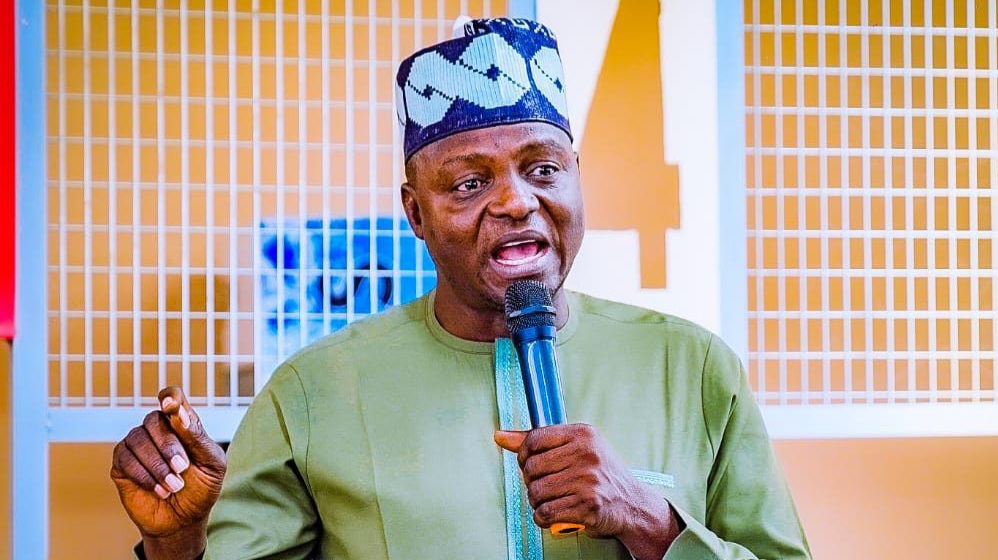
The history of the All Progressives Congress (APC) dates back to 2013, following a merger between at least three opposition parties
In 2023, the merger paid off, and the APC ended the 16-year dominance of the PDP, but this would not have been possible without the party’s leadership
As Prof. Nentawe Yilwatda takes over as APC national chairman, Legit.ng highlights all the party’s national chairmen from 2013 to 2025
The ruling All Progressives Congress (APC) has been a significant powerhouse in the Nigerian political scene since its establishment in 2013.
APC was born out of a merger between three major opposition parties in Nigeria: the Action Congress of Nigeria (ACN), the Congress for Progressive Change (CPC), and the All Nigeria Peoples Party (ANPP).
As a prominent political party, the leadership of the APC has seen several changes over the years, with Prof. Nentawe Yilwatda being the new sheriff in town
Bisi Akande (2013 – 2014)
The elder statesman and former governor of Osun state held the position of the national chairman of the APC briefly on an interim basis when the party was first formed.
He played a pivotal role in uniting various opposition parties to form a cohesive platform to challenge the Peoples Democratic Party (PDP), the ruling party at the time.
Akande’s leadership set the foundation for the APC’s future success, and he is still a party member.
2. John Oyegun (2014 – 2018)
John Oyegun is the party’s longest-serving chairman since its formation in 2013.
Following the APC’s official registration as a political party in 2014, Oyegun became the first substantive national chairman.
Under his leadership, the party made significant gains, winning the 2015 general elections and forming the government at the federal level.
Oyegun’s tenure saw the APC’s expansion and consolidation of its position in Nigerian politics.
Today, Oyegun is part of the African Democratic Congress (ADC) coalition and has even gotten his membership card in his state of origin, Edo.
3. Adams Oshiomhole (2018 – 2020)
Oshiomhole, a former labour leader and Edo governor, took over the reins of the APC in 2018.
During his tenure, the party faced both successes and challenges. Oshiomhole’s strong-willed approach contributed to the APC’s victory in several state-level elections, but internal disputes and factionalism also emerged within the party.
This development led to his ouster as the chairman of the party.
4. Mai Mala Buni (2020-2022)
Mai Mala Buni was famously known for his caretaker role as the party leader following the controversies that led to the ouster of Oshiomhole, BBC reported.
Following the dissolution of the national working committee (NWC), Buni became the acting chairman and later became the substantive chairman after the party’s convention.
When he held the position, he was serving as the executive governor of Yobe state. His leadership has been marked by efforts to unite the party and enhance its electoral prospects. 5. Senator Abdullahi Adamu (2022 – 2023)
5. Senator Abdullahi Adamu (2022 – 2023)
Arguably, the most controversial of them all, Senator Abdullahi Adamu’s emergence as national chairman was laced with wranglings and reservations following his long-term affiliations with the PDP.
The Nasarawa-born politician once shared that he did not support President Bola Tinubu at the APC presidential primaries.
On Monday, July 17, 2023, reports surfaced that he had tendered his resignation letter from being the national chairman of the APC.
In December of that year, he quit politics.
6. Abubakar Kyari (July 2023 to August 2023)
After Senator Adamu’s resignation, the deputy national chairman (North) of the APC, Senator Abubakar Kyari, emerged as the party’s national chairman.
Channels TV reported that Kyari’s emergence as interim APC chairman was announced at a press briefing in Abuja on Monday, July 17, 2023. Kyari, who represented Borno North senatorial district in the 9th national assembly, presided over the APC NWC meeting that day.
7. Abdullahi Ganduje (August 2023 to June 2025)
Abdullahi Umar Ganduje, the present board chairman Federal Airports Authority of Nigeria (FAAN), served as the governor of Kano state from 2015 to 2023. He previously served as Rabiu Kwank
waso’s deputy governor twice, from 1999 to 2003 and from 2011 to 2015. He is a member and former national chairman of the ruling APC from August 2023 to June 2025.
8. Ali Bukar Dalori (June to July 2025)
A deputy national chairman (North) of the APC, Ali Bukar Dalori, replaced Ganduje as the national chairman of the Nigerian ruling party Ganduje’s resignation, which took effect on Friday, June 27, 2025, was confirmed by senior party officials in Abuja as his official letter cited health reasons.
9. Nentawe Yilwatda: APC chairman (July 2025)
On Thursday, July 24, 2025, Yilwatda emerged as the new national chairman of the APC, permanently replacing Ganduje, who stepped down. Yilwatda is a technocrat and politician with roots in engineering, governance, and party politics.
Until his appointment as APC national chairman, he was Nigeria’s humanitarian affairs minister.
Politics
BREAKING: “Serial Disrespect” Sparks Drama As Senate Order Arrest Of Tinubu’s Appointee
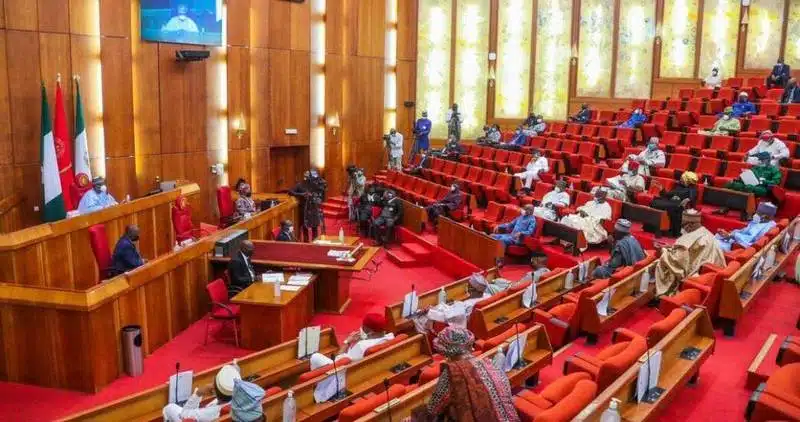
The Senate has asked President Bola Tinubu to immediately remove the Registrar General of the Corporate Affairs Commission (CAC), Hussaini Ishaq Magaji (SAN), from his office.
As reported by Nigerian Tribune, the Senate committee on finance, while passing a resolution in Abuja on Thursday, February 26, accused Magaji of failing to honour the upper legislative chamber’s invitations to account for the finances of his agency.
Senator Sani Musa, the chairman of the committee, said:
“He (Magaji) refused on so many occasions to honour our invitation to appear before this committee.
“We have issues with the reconciliation of the revenue of CAC.
“Each time we invite him, he gives us excuses.
” Magaji was appointed to this position by President Tinubu on October 13, 2023.
As the registrar-general of the CAC, Magaji is expected to work for the development and regulation of corporate affairs in Nigeria.
Meanwhile, President Tinubu on Wednesday night, February 25, formally urged the Senate to begin the process of amending the 1999 constitution to provide for the establishment of state police, declaring that Nigeria must urgently restructure its security architecture to confront terrorism, banditry and insurgency.
Speaking at an interfaith breaking of fast with the leadership and members of the Senate at the State House, Abuja, the president stated that the time had come for lawmakers to “start thinking” about embedding state policing in the constitution to enable governments at subnational levels better secure their territories.
The Nation quoted President Tinubu as saying:
“Nigeria is extremely challenged, we are facing terrorism, banditry, insurgency, but you never failed to make a right response to these calls.
“What I will ask for tonight is for you to start thinking how best to amend the Constitution to incorporate the state police for us to secure our country, take over our forests from marauders, free our children from fear.”
Politics
Opposition Leaders Urge N’Assembly To Begin Fresh Electoral Act Amendment
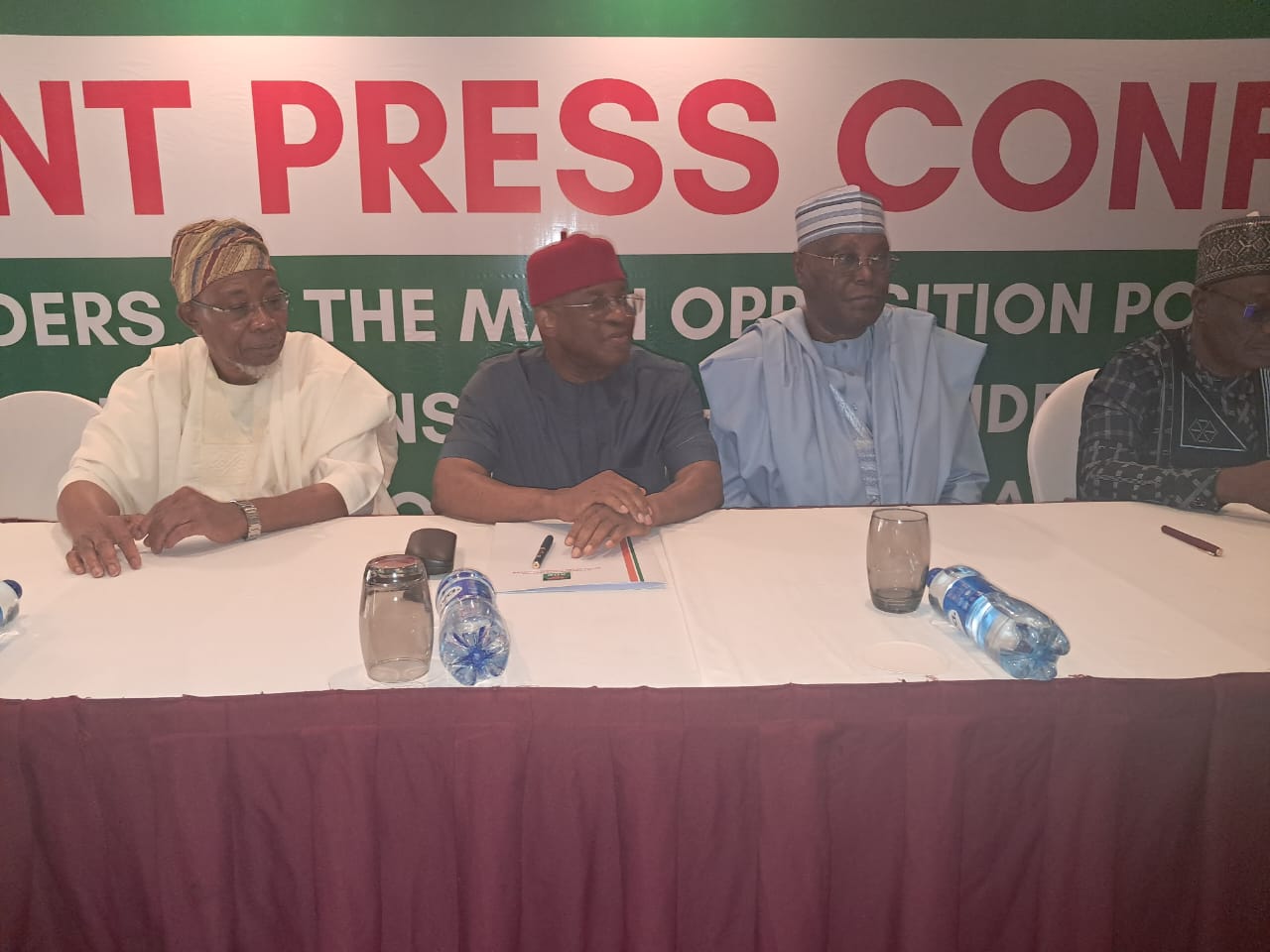
Leaders of the African Democratic Congress and the New Nigeria Peoples Party have called on the National Assembly to commence a fresh process to amend the Electoral Act.
Speaking on behalf of the opposition at a press conference in Abuja on Thursday, NNPP National Chairman, Ajuji Ahmed, urged federal lawmakers to expunge all objectionable provisions contained in the Act.
Prominent opposition figures at the meeting included former Senate President David Mark; NNPP chieftain Buba Galadima; former Vice-President Atiku Abubakar; and the 2023 presidential candidate of the Labour Party, Peter Obi.
Also in attendance at the Lagos/Osun Hall of Transcorp Hilton, Abuja, were the ADC National Secretary, Rauf Aregbesola; former Rivers State Governor Rotimi Amaechi; and the party’s National Publicity Secretary, Bolaji Abdullahi, alongside other stakeholders.
Others present included Senator Dino Melaye, former ADC National Chairman Ralph Nwosu, and former Cross River State Governor Liyel Imoke, among several dignitaries.
Politics
Assembly Confirms Popular Redeemed Pastor As Deputy Governor
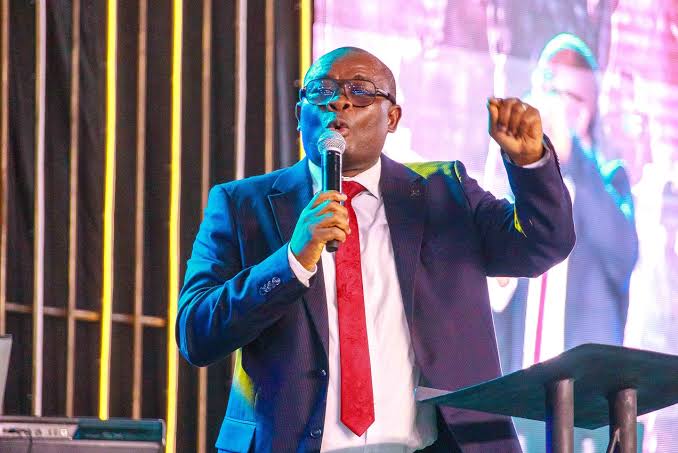
The Bayelsa state house of assembly has approved the appointment of Peter Akpe as the deputy governor of the state.
Akpe, a pastor, served as chief of staff to Douye Diri, governor of Bayelsa, prior to his nomination.
Ordained clergy by the Redeemed Christian Church of God (RCCG), Akpe has had a career spanning the civil service and politics.
He served in the Rivers and Bayelsa state civil services before transitioning fully into politics.
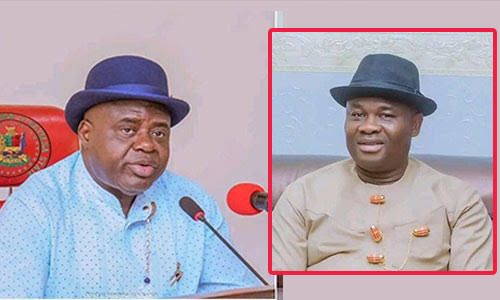
Akpe was a two-term member of the Bayelsa state house of assembly from 2011 to 2019, serving as majority leader throughout his stint in the legislature.
He also served as commissioner between 2008 and 2011 under the Seriake Dickson administration.
The approval clears the way for his swearing-in as deputy governor.
Akpe’s appointment follows the death of Lawrence Ewhrudjakpo, the former deputy governor, who passed on last December.
-

 Business2 days ago
Business2 days agoJUST IN: 13 Banks May Shut Down In March As CBN Confirms 20 Safe For Recapitalisation Deadline
-

 Politics16 hours ago
Politics16 hours agoBREAKING: “Serial Disrespect” Sparks Drama As Senate Order Arrest Of Tinubu’s Appointee
-

 Politics16 hours ago
Politics16 hours agoOpposition Leaders Urge N’Assembly To Begin Fresh Electoral Act Amendment
-

 Opinion16 hours ago
Opinion16 hours agoEdo State To Spend N1billion On Armoured Car For Speaker, N4.6billion On Vehicles For Lawmakers




